Are more crimes committed during a full moon?
Does being angry increase your risk of a heart attack? What's a psychopath? And how much does a cell weigh? This week, Chris Smith answers your questions with Stuart Higgins, Maud Borensztein, Kyle Treiber and James Rudd.
In this episode
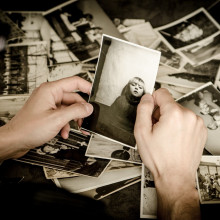
04:18 - What's the Mandela effect?
What's the Mandela effect?
Chris Smith put Steve's question to Cambridge University neuroscientist, Kyle Treiber...
Kyle - I have to admit I was not familiar with this effect until earlier this week so I’m certainly not an expert of the Mandela effect. The idea behind the Mandela effect is that people share memories that are incorrect, and yet, many people may have the same kind of memories. So the name Mandela effect comes from an individual who was a paranormal enthusiast, apparently, and she had a memory of seeing of the death of Mandela in the 1980s, seeing news bulletins on this and yet, of course, that did not occur; he died much later and not while he was in prison. So this individual noticed that other people had a similar kind of memory and so she became interested in why that might be. And she actually had some very interesting but implausible theories, I think, about the fact that there are, potentially, alternate dimensions or universes, and that people are moving through these and that means that they have these false memories which, actually, may be true.
Chris - We put it out on Facebook, we got lots and lots of responses. I’ll give you some more of them in a minute but Martin said this:
Martin - Humphrey Bogart, whenever I was growing up, whenever impressionists used to do an impression of him or people used to refer to Humphrey Bogart they would always reference the phrase “Play it again, Sam.” from Casablanca. There is just one problem; he never said it. In Casablanca, Ingrid Bergman says “Play it Sam,” to the jazz singer Dooley Wilson as he plays As Time Goes By. At no point does anyone say “Play it again, Sam.” This, despite the fact that it was the phrase that perhaps Humphrey Bogart carried around for the rest of his career.
Chris - Also on Facebook, Matt Cochran points out that in Laurel and Hardy movies people claim that Laurel says “That’s another fine mess you’ve got me into.” He actually said “It’s another nice mess,” allegedly.
But why does it happen, Kyle? Why do we think people make these memories and then they propagate everywhere?
Kyle - One of the reasons is simply misquoting; we know in academia that happens a lot. People misquote once and then that quote gets carried on repeated again and again. And so that is what’s being remembered, it’s not the actual situation. If you look at the examples, it’s interesting that a lot of them have to do with language and so I think one of the primary things that is happening is just aspects to do with memory. The brain is trying to save time, it’s got lots of shortcuts and we’re trying to remember long words, long quotes. Particularly something we saw in an instant and it’s gone and we’re occupied with everything else that’s happening in the movie then the brain stores it as quickly and efficiently as it can, but sometimes it gets it wrong.
Chris - Anyone else had any experience of this - Stuart?
Stuart - Well I was wondering because I was talking to my mum over the holidays and I can’t remember exactly what it was but I was saying “Do you remember that time my younger brother did that thing that was really naughty at that party, or something?” And she said to me “No, that was you!” And so I wonder, in that case, maybe my brain was trying to get rid of some of that guilt that I had or something in my system.
Chris - What was this, you started the show saying that you’re blameless, no claims bonus, positive, all this kind of thing. And it sounds actually like, you’re also a liar. I’m just kidding.
Kyle, what do you think?
Kyle - I think that kind of situation is very common. For one thing memories from childhood, there are lots of things that happened since then, so they’re going to get adjusted. You may have heard lots of stories and, in those stories, you reform and reshape that memory. So we know that from images, some people have these very vivid memories and yet, actually, it’s entirely formed from just having seen a particular photograph of themselves.
I have a similar experience. I have an identical twin sister; her favour colour is green, my favourite colour is red. So every childhood image we have we assumed I’m the one wearing red, she's the one wearing green. Apparently, according to my mother this not the case. Now either I’m remembering it incorrectly or potentially my mother is remembering it incorrectly, which also may often be the case.
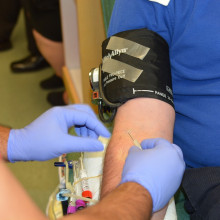
08:01 - Does giving blood make you lose weight?
Does giving blood make you lose weight?
Chris Smith put John's question to Cambridge University cardiologist, James Rudd...
James - Well it’s a great question. Thank you very much John, and it’s fantastic that you're donating blood. The NHS is always in need of blood donations at any time of the year.
To take a donation of blood the nurses will usually remove about a pint, so about 500ml of blood. So, as you say, your weight is going to go down instantaneously by around half a kilogram. But, if you have donated blood in the past, you will know that you’re given a nice large cup of tea, plenty of biscuits. So I think by the time you leave the blood donation centre about an hour afterwards, most of the weight will have been put on in the form of tea and biscuits.
The follow-up part of you question about protein and lipids is theoretically interesting but you must remember that most of our body weight is actually due to water. So I think by the time you’re rehydrated, perhaps the next morning, you’re going to be back at the starting weight. So great idea in theory but probably hasn’t got legs, I don’t think.
Chris - So your average blood samples has got 45 percent cells, 55 percent is water. So at least a couple of hundred grams of the blood donation is just water, like you say, and that’s your cup of tea bringing it back in. The biscuits got 60/70 calories; there’s quite a lot of energy in a biscuit, isn’t there? So you’ve only got to make up just a half a kilo of cells. It’s not very much. No it’s a quarter of a kilo of cells, it’s going to grow those back quite quickly so I reckon that's a no no. Go for a jog instead for the weight loss, yeah?
James - Absolutely. Go for a jog or do something else but, by all means, don't stop donating blood.

10:03 - Why is soap foam always white?
Why is soap foam always white?
Chris Smith put Muhammed’s kid's question to Imperial College's Stuart Higgins...
Stuart - It’s an amazing question. and you’d think actually that soaps contain all these different dyes in them that absorb light of different colours so why isn’t that colour reflected in the foam? Things look like a certain colour because when the light hits the object it’s either absorbed or certain wavelengths are reflected, but, actually, in this case we’re getting lots of different wavelengths reflected. So, even though there is dye in the soap it has this certain colour, so much light is being scattered back to us and reflected back to us that actually we perceive it as white.
There’s a great experiment and I don’t know if any of you have done this with Marmite?
Chris - Do you love it or hate it?
Stuart - Oh I can’t stand Marmite itself but this is a great. You can do this at home. If you get a bowl and put some marmite in it and you get a whisk and you start whisking the Marmite. Marmite is this really sticky dark brown substance and you think well lights not being reflected from that. But as you whisk more and more air into it you create a foam of Marmite and then actually it starts to go paler and paler. And then, eventually, it starts to turn this sort of white cream colour.
Chris - And you discovered this how?
Stuart:: Practice…
Chris - It really goes white?
Stuart - Yes, if you whisk it far enough. It’s kind of like a beigey white. But yes, if you really put enough air into it, it will eventually go foamy and it will start to look white.
Chris - Can you make Marmite meringues then?
Stuart - Oh that horrible! Ughh!
Chris - That’s a horrible thought…
Stuart - Yeah.
Chris - But from a physics point of view, would it happen?
Stuart - I guess if you could somehow get the Marmite to spread out and be dispersed, as we say, into a mixture of egg and protein then maybe you could. That sounds like a great idea. I might try that later.
Chris - And just to return to the soap point of view, away from the Marmite. It’s the same principle then that when you look at snow, this is white despite the fact that you’ve got water, which is transparent, that makes it, you end up with white snow because it’s lots of little crystals of ice which are doing pretty much the same thing. Milk probably the same, or Dettol, when you pour Dettol or detergent in water you get it going into a cloudy white colour and that’s little blobs which are bending light in the same way.
Stuart - Yeah. It’s all to do with...does this material we’re looking at have lots of different angles and complex structure that can cause light to scatter and reflect in lots of different angles?

12:43 - What is a psychopath?
What is a psychopath?
Chris Smith put Rachel's question to Cambridge University's Kyle Treiber...
Kyle - This is a good question. Psychopathy is a term that’s got a lot of attention right now in criminology, but it’s still a very nebulous concept. The term itself “psychopathy” it’s a disease of the mind. It’s very broad but generally when we’re talking about a psychopath, we’re talking about people who have particular what we call psychopathic traits, and these tend to be things like being callous, unemotional, self-aggrandisement.
They’re typically associated, I think, most predominantly with emotional deficits and these may be deficits, in some cases, people's ability to experience emotions. But also, there’s a lot of evidence that there may be ability to experience emotions but then not to use that information later on when people are making decisions about behaviour and, of course, that can lead to a lot of challenges in actual decision making. And one of the things that’s really useful from this area of research is that is has brought attention to the emotions and the role of emotions in criminal decision making.
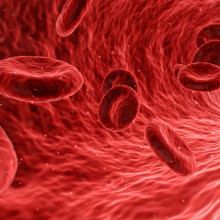
13:50 - How much does a single cell weigh?
How much does a single cell weigh?
Chris Smith put Tony's question to Cambridge University's Maud Borensztein...
Maud - The body is made up of very different types of cells. If you think about a red blood cell, for example, that is a very tiny cell compared to nerve cells. Nerve cells can reach lengths over a metre so it’s a bit difficult to do an approximation of the weight of a single cell.
Chris - Shall we have a straw poll? James - how much do you think a cell weighs?
James - It depends which cell you’re talking about Chris, I suppose.
Chris - What cell would you like to estimate?
James - Red blood cell.
Chris - Okay, how much does a red blood cell weight?
James - I would say about… a thousandth of a gram.
Chris - One milligram. James is going for a milligram. What do you think Stuart - does that sound within the realms of of possibility?
Stuart - Well, you said 3.7 trillion earlier so I’ll try and divide that by…
Maud - Yeah. In between 3.7 and 30 trillion.
Stuart - I’m going to go for a bit less than a gram. Round it to one - physicist approach.
Chris - Maud, put us out of misery then.
Maud - We can more or less do an approximation of under one nanogram.
Chris - A nanogram?
Maud - Yes, a nanogram. So we can imagine…
Chris:: So, James is a millionfold out then?
Maud:: Yeah, exactly. We can imagine to do a gram of cells we would need nearly a billion.
Chris:: Wow! That quite light isn’t it?
Maud - Yeah.
Chris - But you did say, and James was crafty he said which sort of cell are talking about because some cells, like you say, are muscle cells - a big muscle cell. Some of them are a foot long aren’t they?
Maud - A muscle cell will be a lot easier. Even like an adipose cell, fat cells for example. There’s a question of size but also a question of weight. A fat cell will be lighter than muscle cells even if both are quite big.
James - Because I imagine, as you say Chris, the muscles of your quadriceps or your hamstrings - a foot long - got to be up there 10 or 20 grams, probably more isn’t it?
Chris - I would think probably because that’s one of the biggest muscles you’ve got apart from you gluteal muscles in your bum. They are, I think, the ‘king’ muscle, aren’t they?
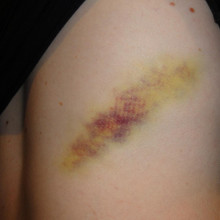
15:60 - Does it help to rub a bruise?
Does it help to rub a bruise?
Chris Smith put Margaret's question to Cambridge University cardiologist, James Rudd...
James - So a bruise is I think what’s being referred to here. So bruises are really bleeding underneath the skin. When you bang yourself on the desk, bang your knee on the desk what happens is the very small blood vessels can rupture because of the force of the impact. This blood accumulates underneath the skin and causes inflammation and swelling of that area. If you observe the area every few days you’ll notice that the colour of the bruise changes from, initially, a sort of deep blue, to more of a brown, to more of a yellow. And that’s really because the elements of the blood, the iron, the haem, is being changed and oxidised with time.
Now as for rubbing the bruise and making it better; I did look into this because I hadn’t actually heard this ‘old wives' tale’ before but I think it is just that, it’s an old wives' tale. Part of the defensive mechanism of the body is to stimulate that inflammation when you bang yourself so the swelling is protective really and helps the body break down the blood that’s got into the tissues. Rubbing it as a good distraction certainly and with my toddler at home, if there is a bruise a good rub on the knee and some chocolate perhaps certainly diffuses the situation. But I don't think there’s any effect there.

17:27 - Is there more than one Universe?
Is there more than one Universe?
Chris Smith put Josip's question to Imperial College's Stuart Higgins...
Stuart - Do you know what Chris, I have to be completely honest here, I had no idea about this question. Even as a physicist, even having a physics degree, I had to go and consult a more specialist physicist - I had to go and find a cosmologist and ask him. So thank you to Dr Roberto Trotta, Imperial College’s theoretical cosmologist So I went and had a very nice coffee with him and he kind of blew my mind.
There are lots of different ideas here but, what I should say is, these are theories, these are ideas and consequences of the mathematics that cosmologists have come up with. Not all cosmologists agree about these. But in the same way that we know about the big bang model and our understanding of the universe, if you start to look at more complicated maths, start to consider what are the consequences of different models that created the universe, then there are some interesting outcomes. It could be, actually, that our universe isn't the only one, that other universes have budded off at a certain time and have very different properties to our own. That they could have different numbers of dimensions, that they could have different constants to the laws of physics where the speed of light is somehow different, or something else entirely.
And on top of that it gets even more complicated when you consider things like the quantum multiverse. One way of interpreting the kind of mysteriousness of quantum mechanics is that when you make a decision, the universe splits out into all the different variants of different ways that decision could have gone. And so you end up with this very complicated system of theories where you have different universes, each of which might have millions of quantum multiverses on top of them, so it’s very complicated.
And the answer is: these are all theories and we can’t yet measure anything to give us an indication of what they are. They’re consequences of maths.
Chris - Michio Kaku came over from New York and gave a talk here in Cambridge about ten years ago to coincide with the release of his book “Parallel Universes.” And he said: well, one of the ideas of the big bang that occurred in our universe, its origin, you can think of it like the big bang is a white hole which occurs at the arsehole of a black hole in another universe. So sort of one universe is spawning other universes out of it’s black holes. Did Roberto Trotta comment on that at all?
Stuart - He didn’t specifically use that language no.
Chris:: Neither did Michio Kaku, but I’m sort of adding colour.
Stuart - Okay, okay. But it’s very interesting and it is one of those things. So I’m experimentalist and I always want to the see the data, I always want to see what the measurements are but, actually, at the same time you need to be able to theorise these things so you know, as experimentalists, what to look for. And maybe, in the future, when our instruments get better as we’re able to detect more exotic things like gravitational waves, we might start to see signatures of what’s beyond our current understanding of the universe.
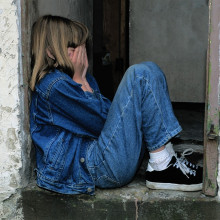
20:18 - Does the brain go 'offline' when scared?
Does the brain go 'offline' when scared?
Chris Smith put Kiri's question to Cambridge University's Kyle Treiber...
Chris - So I guess what she’s saying is can people dissociate themselves from reality when they’ve got a gun in their hand when they know they’re going to do something evil with it?
Kyle - One of the things that she’s tapping into which is very important is that we aren’t always cognitively in control. So the prefrontal cortex is the part of the brain that does our really conscious, careful, deliberate thinking and one of the focuses for a lot of decision making when it comes to crime has been on this. How do people think about the cost and the benefits of their crimes and how does that weigh into whether they decide to do it or not. So we have a focus on prevention-like deterrents, trying to show people the bigger cost to their behaviours. But we’re finding that’s not working and one of the reasons that I think that is the case is because the prefrontal cortex is often not in control. But another aspect of decision making that is being tapped into in this question is the more emotive or effective control, and these are more primitive, more automatic processes in the brain. And there’s actually parts of the brain that decide whether they pull in this cognitive prefrontal aspect or not and in a case when someones under extreme fear, under extreme stress, the brain doesn’t have the time, the effort to bring in those processes. So instead, it relies on more automatic behaviours, habits, instincts in some cases and so that’s what happening when people are really afraid. And, if you have a gun to hand, then it is possible that that could lead to a quicker response that involves the gun. However, there’s a lot going on here. People have to see having that gun and using it as an option for action and many people just automatically won’t. So automatically, in that moment of fear, they won’t reach for the gun; many people won’t even have the gun with them in the first place. But, having the gun present does suggest that the person thinks that they might use the gun in some situations and so, therefore, if it is there then there’s a possibility it’s going to relate to the violent behaviour.
Chris - So would that stand up as a defence in court do you think - oh, my brain screened out all of my other thought processes and I thought I was in danger so I just shot the person?
Kyle - This is a big current issue in neural law actually. It’s something that’s of real interest and we haven’t been able to deal with it. And one of the reasons is because neurologists, criminologists and lawyers just aren’t speaking the same language so that’s just an issue that we need to address and, obviously it’s an important one. I think, at the moment, our understanding is that there is an element of control and ability that is there. You can have people in the same situations that wouldn’t make the same choice so, until we can say that you would absolutely have no choice, then I think the law will stay as it is. But it’s certainly a discussion that is being had and needs to be had.
Chris - Kyle; thank you very much.

23:03 - Could superglue be used to suture patients?
Could superglue be used to suture patients?
Chris Smith put Luke's question to Cambridge University cardiologist, James Rudd...
James - It’s a good question Luke and the answer is yes. In fact, since about the 1970s superglue, in a much more dilute form than you’d buy in your local hardware store, has been used for just this purpose. The super glue we use in hospitals is of what we call a medical grade, so it’s checked for sterility to make sure it’s sterile and make sure there’s no bacterial viruses in there. But it works very well and head to head studies with traditional stitches have shown that the glue, in many cases, is superior because the act of actually putting a needle through the skin to introduce the suture actually is another portal for infections to get into the wound and cause wound infections. So for certain kind of incisions superglue, or it’s more dilute cousin shall we say, is very good. The glue is generally applied to incisions that are quite shallow, particularly on the face because you don’t then get the associated small holes where the sutures have been placed. And rather than being worried about super glue sticking there forever and it being hard to get rid of, we know that the superglue after three or four days actually comes away quite easily once the wound has begun to heal underneath it.
Chris - Does it work it work it’s way out through the surface then - is that what happens, the glue is shed with dead skin?
James - Exactly. As the epithelial cells die and are replaced, the layer with the glue slowly sluffs off.
Chris - So you haven’t got a layer of Loctite left in your face for the rest of your life?
James - No, exactly.
Chris - Thank you James.

24:39 - Would removing the seats from my car save fuel?
Would removing the seats from my car save fuel?
Chris Smith put Lionel's question to Imperial College's Stuart Higgins...
Chris - Should he take the seats out or would driving round with them really not make any difference?
Stuart - It would make a difference but probably not enough to warrant taking the seats out and especially the weight is all down to different mechanisms, so different things can affect how much energy the car uses and, in particular, you tyres. About three to seven percent of your energy that’s burnt as fuel goes through the rolling resistance of the tyre.
Chris - That’s because you’re bending and flexing the rubber is it? Everytime it goes round it’s squeezing and then stretching a bit and that’s converting some kinetic energy into some heat, isn’t it?
Stuart - That’s exactly right. So that’s where some of that energy is being lost and as you apply more load, more weight to your vehicle, that deformation, that amount of flexing goes up and that starts to increase.
Chris - So that’s why you should pump the tyres up and make sure you have well inflated tyres because then they’re not bending as much; you’re not wasting as much fuel flexing and re-shaping your tyres?
Stuart - Very true but, at the same time, there are other factors you might want to consider such as: how your tyres grip the road and other safety aspects that are unrelated. Now this is very very back of the envelope - this is the physicists disclaimer here. I was looking at some data that was measured in the U.S. of how the weight of a car relates to what its miles per gallon efficiency is and it works out at something like per kilogram of weight something like a reduction of .02 miles per gallon. That’s very rough and I’ve got a lot of caveats on that. But, applied to this situation, we say three seats and about 10 kilos each, if you’re doing about 6,500 miles, which is the U.K. average over a year, it works out at about 2 gallons of fuel which is about 11 quid a year.
Chris - I was going to say the other thing that I find interesting is I never fill my car right up full of fuel unless I’m going on a long journey where I’m not going to stop because otherwise you think, the mass of the fuel in the car, that big tank of fuel weighs the equivalent of a person, doesn’t it? And you are, especially if you’re driving round town you are accelerating and then breaking and adding all that energy to that fuel for no reason.
Stuart - And that’s exactly right. So if you look at things that would make a bigger difference than say moving the seats out, actually, your driving style is a huge big part of that. How fast you accelerate and that action has a big impact on how much fuel you are going to use.
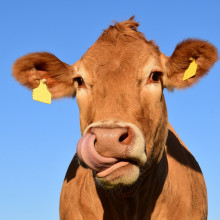
27:12 - If cows ate strawberries, would their milk taste like strawberries?
If cows ate strawberries, would their milk taste like strawberries?
Chris Smith put Neil's question to Maud Borensztein from Cambridge University...
Chris - Now I like that idea very much but is that a myth or could it happen?
Maude - I do also like this idea but I would prefer chocolate if I would have the choice. But you won’t 'strawberry-ify' your milk but what we know now that a change in what you give to your cow could slightly influence the taste of the milk. So there are two studies that have already been published and it seems that when they add strong flavour to the food there’s a slight tell that have been found in the milk. And this is something that is found also, for example, in France with the cheese. For the gruyere or the beaufort we have two kind of cheese, we have the summer one and the winter one, and it seems to be because of what the cow will eat. During the summer they will eat grass and flowers, when during the winter they will mostly eat hay and it will slightly change the taste of the cheese.
Chris - Stuart…
Stuart - I heard something as well that if you fed certain animals say poison ivy or something that they could develop in their milk some kind of antidote or some kind of resistance that would be produced by the milk afterwards that you could use the animal almost to kind of create a...
Maude - I know that what is important with the milk that you can give to the baby.
Chris - Oh yes, you’re talking about antibodies, in like colostrum and things because that can change the microbes that live in your gut. I wondered when you were talking about breastfeeding whether you were going to explore this whole idea about what the mum eats affects what the baby grows up wanting to eat or has a particular predilection to want. You’re nodding James - is this something you’ve seen?
James - I’ve certainly heard it said that what the mother eats can make breast milk more or less palatable to the baby. Now as to whether it affects the babies or child’s food choices later in life. Is this the Mandela effect Chris?
Chris - Aha. I have seen studies that have looked at what goes into the mother’s mouth and then what ends up in her blood, and there are certain proteins which you can then trace. People have done tracing studies and they can show them coming through in the breast milk and so there is a suggestion that certain food stuffs do influence the composition of breast milk and that can include strongly flavoured chemicals, particularly garlics and onions, allium family type things and that may have an impact on what the baby likes. Kyle?
Kyle - I’m certainly no expert on this but I have two small children who I did breast feed. So I read a lot of literature and certainly it’s given that you will have these differences that come through in the milk from what you eat. But I think there’s a lot of real new research about the gut and, again, I study the brain so it’s a bit outside of my field, but there’s some fascinating stuff that I’ve read about the effects on the gut biology and the fact that we are just learning more about the biota that’s there. So we know that cesarean sections, for example, is changing the gut biology of the babies born by cesarean. So I would be curious if the breast milk, the breastfeeding is changing that too. I don’t know of any research on that.
Chris - Kyle; thank you very much.

30:46 - Does being angry increase your risk of a heart attack?
Does being angry increase your risk of a heart attack?
Chris Smith put Linda's question to Cambridge University cardiologist, James Rudd...
James - There has been some recent research actually. There was a paper published in 2016 and a much larger review in 2014 that showed that yes, if you have an angry outburst or get upset or stressed by something, over the two hours following the angry outburst, even if you’ve calmed down, there is a four times increase in your risk of heart attack. Now you have to put that into context the fact that most of the risk of an individual's risk of a heart attack is extremely low and the risk of a heart attack in any one hour period is very, very small. So increasing a very very small beginning number by four times, you’re still left with quite a small risk at the end of that. And there are far greater risks to having heart attacks things like: diabetes, blood pressure, and smoking that we are aware of. And also, related to this, there was another really fascinating study, which was performed during the 2010 World Cup. And it was shown that watching England’s dismal performance, if you remember during that competition, actually again because it’s a stressor to the system; you’re frustrated, you’re sitting in front of the TV watching the football, that can also increase the risk of heart attack. But again it...
Chris - Are there any telly programmes or sports I can watch that won’t have that effect or will have a reverse or a calming effect and reduce my heart attack risk?
James - Maybe I’m going to go out and say bowls, maybe, something like that.
Chris - You’d just die of boredom instead, wouldn’t you? But surely the element about getting angry, although in that moment in time you’re risk elevation is quite small, surely one has to consider that if your are chronically angry, and we all know chronically angry people, then that risk must magnify because it will accummulate over a day, over a week, over a month, and so on?
James - Absolutely, you’re right. And this effect was most prominent in people that are generally of the angrier persuasion to start with, and also in patients with pre-existing heart disease, again, compared to patients without it. So it’s a small effect, it’s real, and we think it’s probably to do with increase in the blood pressure, increase in the heart rate which, of course, stresses the cardiovascular system, puts more stress and work on the heart and that puts you at greater risk of heart attacks for about that two hour period afterwards.

33:01 - Could my bedding cause a fire?
Could my bedding cause a fire?
Chris Smith put Sereen's question to Imperial College's Stuart Higgins...
Stuart - No, and that’s because the energy that comes out of those sparks is far too small to ignite the material that your bed is made of. But, actually, there are circumstances where it could be a problem and the classic example is at a petrol station.
Chris - How many people sleep in a petrol station, Stuart?
Stuart - That’s true, that is very true. So if you’re in bed you're okay, but the way you have to worry about this is something like… Well, actually, do you know why you have to hold the handle in the UK? So, if you go the U.S or Germany you don’t have to hold the handle while you’re filling the car.
Chris - At the petrol pump?
Stuart - At the petrol pump yes.
Chris:: Because it’s earthed!
Stuart - Yes, exactly. They’ve found that if you have a system where you go and put the petrol pump in, you squeeze the handle and you lock it in place so you can walk away. People tend to go and sit back in their cars and as they get out of their car again their clothes are rubbing against the seat and it’s generating this static electricity. And the first thing you then touch is the petrol pump, with the vapour, and then in that case the energy from the spark, which is about 8 kilovolts, is enough to ignite the petrol fumes. Very low risk, doesn’t happen a lot, very, very few reported cases but it’s one of the reasons why, in the U.K., you have to squeeze the handle while you’re doing it.
Chris - Is it fashion dependent? People who have a persuasion towards a particular latex or nylon underwear or something? Are they more prone to having a fuel tank fire?
Stuart - Potentially. The ability to charge clothes by rubbing them against different surfaces depends on what that material is and certain materials, yes, are easier to charge up than others.
Chris - You can sleep easy on that piece of advice. Your bed sheets are not going to cause an inferno while you’re sleeping.
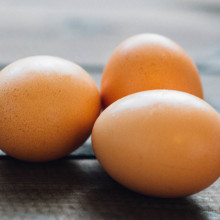
34:45 - What would happen if you incubated a double yolk egg?
What would happen if you incubated a double yolk egg?
Chris Smith put Judy’s question to Maud Borensztein from Cambridge University
Maude - You will end up with two chickens. The thing is even if a double yolk egg is bigger than a single yolk, two chicks won’t have enough space. So having two healthy chicks at the end is something that is unlikely to happen.

35:20 - Do your genes make you a criminal?
Do your genes make you a criminal?
Chris Smith put J.J. Vigganio's question to Kyle Treiber from the University of Cambridge....
Kyle - There are thousands of factors that we know are associated with crime involvement and some of those are individual, some of those are biological, others are psychological but we also have mainly social aspects, environmental factors that we know predict crime. And I think once we are understanding more and more not only how many factors, but how interactive those factors are, we talk about multi-factorial effects, so, for example, it’s not going to be one gene. We have found very little evidence of any single gene having a huge influence on criminal behaviour. In fact, there seem to be many, many genes involved in any kind of outcome, physical or behavioural and, of course, behaviour is a whole other dimensions. Similarly, there are also very many environmental effects that are interacting with those genetic effects. So, ultimately, what we have are very small influences across many factors. So I think, actually, rather than saying is there any room left for free will, I think it’s quite clear that there’s plenty of room for free will because not any of those factors is going to be so influential that we have no options or choices but to do what it’s influencing us to do.
Chris - There’s a study from the U.S. last year which I remember reporting on. I was quite stuck by it, but they were showing it’s correlation not causation. You’ve got to be very careful how one interprets this but there was a lady showing that where you grow up, in terms of your exposure to pollution, strongly influences your likelihood of getting in trouble and having behavioural problems or even being dyslexic. And so, they were showing this strong correlation between maternal exposure to pollution and then these different behaviours in the children. So I guess that would be a good example here, wouldn’t it, in that the environment in which you grow up? The same individuals they controlled the study quite carefully, they compared individuals who lived in polluted and non-polluted parts of cities, there was this really quite profound effect.
Kyle - We see a lot of research that is like this, and it’s very interesting because it does suggest that something is happening. But a lot of what may be happening may not be a causal effect in the sense that the pollution is causing that, so the pollution may be having some effects on development which we could study and look at. But, arguably, there’s also going to be selection effects about the kinds of people that live in these neighborhoods. And those individuals, that selection of those kinds of individuals into this environments may be having more of an influence on the outcomes of the children than actually the pollution itself.
Chris - And the questioner mentions the fact that it very often is men. Why are we more prone as men to do naughty things compared to women, or are we?
Kyle - Well, one thing to think about is that it’s not being male that makes you more prone. So there are very many men who do not commit crime, far more than actually do and have any kind of criminal conviction. Being a male does not make it more likely that you will offend. There are certain things about males that may mean that you are more likely to be in situations that you would be vulnerable to offending.
Chris - More likely to get caught? Kyle - You could be more likely to be caught. There could very much be a selection effect that the police are more likely to arrest you or you’re more likely to get convicted for your crime. Chris - Women are better planners?
Kyle - Well, I mean we could argue that all day but as far as crime involvement goes I think there are a lot of differences. What we look at, for example, differences in what women think are right and wrong behaviors to do, their levels of self control. But also, in particular, their exposure to different kinds of environments, how much time the spend unsupervised with peers, handing out at night, drinking alcohol in city parks and so forth.
Chris - Interesting. James…
James - I was just going to come back to your point Chris about pollution and how it can really affect not only potentially your risk of future crime, but also there’s a very strong link with heart disease as well. And, in fact, it’s an inverse square law: the further you move away from the road the less your chance of heart disease.
Chris - And do we know why? James - It’s thought to be the nanoparticulate, the very small bits of pollution that can get straight into the bloodstream through the lungs and they can increase stress on the heart. Chris - How? James - Atherosclerosis, so hardening of the arteries; it exists in most people. But people with high levels of these pollutants in their blood, there’s more inflammation and this can lead to plaque rupture and heart attack.
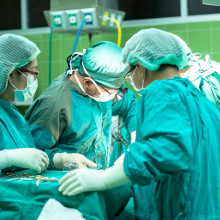
39:31 - How long can someone survive with no blood flow?
How long can someone survive with no blood flow?
Chris Smith put Thomas' question to Cambridge University's James Rudd...
James - During heart surgery it’s important for the heart surgeon that the heart stops beating. A beating heart is very hard to work on in terms of putting in sutures etc. So what the surgeon does is stops the heart beating and this is done using an infusion of potassium and also the patient is cooled down about 4 or 5 degrees lower than normal body temperature. And, finally, they’re connected to what’s called a heart/lung bypass machine which simply, as the name suggests, bypasses the heart circulation. So the patient’s own blood is taken out from the right side of the heart (the atria). It is then oxygenated artificially in the heart/lung machine and then put back into the patient. So the patient’s heart is not beating and this can be sometimes for many hours without any detrimental effects. There’s a second part to the question which is how long could somebody survive without any circulation? We know that the brain is the most sensitive organ to not having adequate oxygen and blood supply, and most people think that two to three minutes without any circulation is enough to cause very severe, irreparable brain damage.
Chris - Now what’s interesting is that you’ve told us all these figures about cells needing oxygen and sugar and things but the egg that we were talking about earlier Maude, that doesn’t have any circulation. So how does it get its oxygen and sugar and why doesn’t the egg succumb to the same problems because chickens are warm blooded and the eggs are incubated under the hens body to keep it warm, aren’t they? So how do they protect themselves?
Maude - What is amazing with an egg is they are self-sufficient, at least for a certain period of time. In the human it’s only self-sufficient for the first 10 days before implantation. Then the egg will implant in the uterus for humans and will develop blood exchange between the mother and the baby.

41:48 - How does matter stick together?
How does matter stick together?
Chris Smith put Donald's question to Imperial College's Stuart Higgins...
Stuart - So stars and planets are formed in these giant dust clouds and, initially, it’s gravity that starts to bring things together. And the star forms and the gas cloud collapses on itself and the gravity pulls in and, eventually, at some point, nuclear fusion starts the process the force is so great, and a star is born. With planets when you’ve got dust circulating the existing the systems.
Now, initially, as different atoms pass, they might bind together and form molecules and these might start to aggregate and get into slightly larger dust particles. But, actually, there is a problem here because when dust particles start to get bigger and bigger, when they bash into each other they don’t necessarily stick, they bounce off each other like two pool balls hitting each other, and this is an ongoing puzzle in science. It’s not clear what the answer is.
Some people think that it depends on the shape of the dust particles. So, if the dust forms in a very irregular way - they call it a fractal way, it’s a very rough surface and the chance of it sticking when two pieces come together is quite high. Some people think maybe that there’s some organic material in there that’s more sticky that might add to that mix, or maybe ice or frost, but it’s a really big puzzling problem. It’s called the metre-sized problem, which is how do you get from bits of things that are in an order of centimetres up past a metre without them bashing off each other so that they split apart again or that the become too big that they suddenly fall into the star they’re all orbiting?
Chris - Is it not just the fact that when you’ve got millions/billions of particles all in one place that you’ve got billions of goes at the more kind of bashing into each other with different amounts of momentum, coming from different directions and, just by chance, a few are going to cancel each other’s movement out exactly and hang around together And then, once you’ve got fewer of those, a few more of those join in and eventually, with enough rolls of the dice, you get there?
Stuart - Yes. So potentially, part of the problem is that when people study this they literally get dust and fire it at each other and record it with a high speed camera. And that give you some indication; it shows you how things bounce off each other, but it doesn’t necessarily reflect the environment the particles are moving in. So, for example, some people, or some scientists believe that if your large particle is moving through a gas flow and a bit flies off, that small bit that flies off is going to fly straight into a gas stream, be pushed back towards the big particle again. So it all depends and basically it’s complicated and we're still not sure exactly what happens.
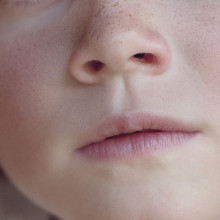
44:32 - Can I alter my genes?
Can I alter my genes?
Chris Smith put Millie's question to University of Cambridge's Maude Borensztein...
Maude - I would like to begin by saying that now we do have the technology to edit our genes, to edit our DNA. So we are able to get one cell or a pool of cells and modify precisely our DNA sequence. The thing is people are thinking about that for gene therapy, for example.
Thinking about the question from Millie about the skin, we could target a small amount of skin cells and modify the gene. But thinking about modifying the entire skin body is something that seems very complicated.
Chris - So it might be possible in the future but right now, probably a step too far?
Maude - I would say that being able to be able to touch an entire organ, you should think about changing it, mutating it earlier. So I mean earlier…
Chris - Before it gets to those three trillion cells or so?
Maude - Exactly.

45:52 - How can I reduce the risk of heart disease?
How can I reduce the risk of heart disease?
Chris Smith put this to University of Cambridge's James Rudd...
James - So again, it’s a really good question and very topical at the moment. There are three or four different types of dietary fat and Elizabeth is referring to what we call polyunsaturated fats - omega-3 and omega-6 being the main ones that we consume. Long-term studies of something called the Mediterranean diet, which takes advantage of the fact that people in southern France, southern Italy, and Spain have less heart disease than people in the north of Europe. They seem to consume a lot more oily fish, and oily fish such as salmon, fresh tuna, mackerel, herring, etc. are very rich in omega-3 and this has been shown to be a significant factor in reducing the incidence of heart disease.
Now, the second question, which I am often asked in my outpatient clinic, is can I take supplements. I don’t like oily fish, can I take pills - omega-3 pills - instead of eating oily fish? The answer is: it’s fairly clear that supplements are not as good as eating the fish itself. For vegetarians out there, there are other options that contain omega-3, such as flax is one that is well recommended and that seems to have some beneficial effect.
Chris - Do you believe this or do you think it’s just people who don’t eat fish in their diet probably don’t eat other things that are also positive in terms of their impact on your health and so we’re attributing that to a lack of fish or omega-3 fatty acids and its other health effects?
James - The studies have actually been fairly rigorous and they have controlled for other areas of the diet that might be deficient. And the recommendation from societies like the British Heart Foundation, which is leading in this area, is that we should eat oily fish twice a week and one of the portions should be around 140 grams, and that does have a very positive, beneficial effect on reducing the chance of heart disease.
Chris - Good for brain development as well, I’ve heard. Is that true?
James - I believe so, yes. At a much earlier age, obviously than we’re talking about preventing heart attacks but, yes, I think there is an effect there as well.

Are more crimes committed during a full moon?
Chris Smith put this to Cambridge University's Kyle Treiber...
Kyle - Well, I really like this question because it immediately made me start to think about why this relationship could actually exist. Is there anything about the full moon that could actually cause someone to commit an actual crime? Sadly, I have to say my very quick review of the literature suggest there isn’t a very strong statistical evidence that there’s a consistent effect of the moon on criminal behaviour.
However, we can still think about what those effects might be and there’s some interesting new research. We seem to have ruled out any gravitational effects. The moon does not have a gravitation pull at individual levels, apparently. But there’s some new interesting research about the fact that there may be some lunar based elements of our circadian rhythms (our natural rhythms) that we have throughout the day. And that could relate back to mechanisms that had to do with the tide and the importance of the tide for food, for aspects of mating or bringing people together, being able to move from one environment to another. So that’s interesting to think there might be mechanisms and it does affect aspects like cortisol, so hormones which we know are related to stress responses which, therefore, can be related to crime.
I think though, arguably, these effects are going to be probably as small, or much smaller, than things like what you ate for dinner or how much sleep you got the night before and, more likely, if there is an effect is going to be more environmental. So maybe that it’s lighter outside and people spend more time being active in contexts where they can get in trouble. And maybe the police are more alert because they had the feeling that people are going to be more troublemaking and so they’re more likely to catch the offenders. So maybe the moon helps them apprehend more offenders. So all of these could be feeding into any relationship.
Chris - There was a study in Current Biology - I remember this about three or four years ago. They actually had some data collected, more than a decade ago - people coming to a lab and doing a sleep study and someone said: “well look, actually we’ve got all of the data and we know exactly who turn up and how long the slept for, and how well they slept.” And someone said, “why don’t we just compare that with what the moon was doing at the same time.” They found that people attending for the study at the time when there was a full moon had much worse sleep performance initially in the study than individuals who came at other phases of the moon’s cycle. So they were suggesting that there does appear to be some kind of monthly cycle built into our brain, perhaps dictated by the moon, or perhaps that’s just an indirect marker, perhaps it’s light or something. But there did appear to be an effect.
Kyle - Yeah. I think from what I know and listening and it’s obviously not my area of expertise but I think that yes, there is evidence that there is such an effect. But it was something like 20 minutes difference in sleep a night, and we know about how many other factors can influence our sleep in 20 minutes of sleep at night. So, again, it’s very interesting to think about that. I think it was robust actually, whether or not whether they experienced any changes in light as well, so it’s ruling out that aspect of which I think is a very important aspect of that kind of research. But, ultimately again, I think the effects are very small.

Where does space begin?
Chris Smith put this to Imperial College's Stuart Higgins...
Stuart - So first bits first: where does the sky begin? Well, it kind of begins where the ground stops being - it’s where the atmosphere is. If you want to go into a legal side of it, you could argue that planes are not not allowed to fly below 150/300 metres. So a lot of discussions about drones and making sure you don’t fly them. But the sky begins at ground level.
Where it ends? Well, that kind of depends on what you think. So actually it’s fuzzy; there is no clear boundary where we say that's the edge of the Earth’s atmosphere. It extends up huge, huge distances. There’s something called the exosphere, which is this huge ball of low density gas that extends somewhere about 10 thousand kilometres up into the sky. Bearing in mind the width of the Earth is 12 thousand kilometres so to give you a size... that’s huge. But a lot of people like outer space to be defined as around 100 kilometres, or 62 miles.
Chris:: So just to clarify then - you’re saying that there are vestiges of the Earth’s atmosphere out there at least 10 thousand kilometres above the Earth?
Stuart - I know, incredible distance. The bits that you consider still have some kind of influence and link to the Earth. Beyond that, of course, there is some limit at which there will be no more particles and you can argue there is no influence of the Earth.
Chris - I mean we know this happens because satellites slow down in orbit over time, don’t they, and that’s presumably because there is drag against these vestiges of the Earth’s atmosphere out there?
Stuart - Exactly. And that means they have to be high enough to do that. My favourite thing is: if you want to become an astronaut you need to pass the Karman line, and that is the point where you go above 62 kilometres, about 100 miles, and then you can get your astronaut wings.
Related Content
- Previous Double Hubble
- Next Big Brains Boost Deer





Comments
I beg to disagree. I take a
I beg to disagree. I take a small daily dose of aspirin (100 mg) and thus tend to bruise easily. If, after a knock, I do nothing, I end up with an evil-looking bruise of many colours. However, if I rub the tender spot vigorously several times a day for the first 2-3 days, there is (practically) nothing to see. So experiment trumps theory.
Re: "does it help to run a
Re: "does it help to rub a bruise?"
While it is true that rubbing damaged tissue will do nothing to repair the tissue, rubbing an area that has been subject to painful stimuli could be a form a pain modulation, and is indeed thought help reduce the sensation of pain. This theory is called "Gate Control Theory", and forms the basis for TENS machine treatment for pain modulation (1). The idea is that non-painful signals will interrupt the transmission of painful signals from the same area. That said, the mechanism for this type of modulation is poorly understood, and since its inception the theory has been under fire for using misleading data (2). Treatment with a TENS machine is also not effective for all patients (1), which could suggest a placebo effect.
(1) http://nba.uth.tmc.edu/neuroscience/m/s2/chapter08.html
(2) Br Med J. 1978 Aug 26; 2(6137): 586–587
Add a comment